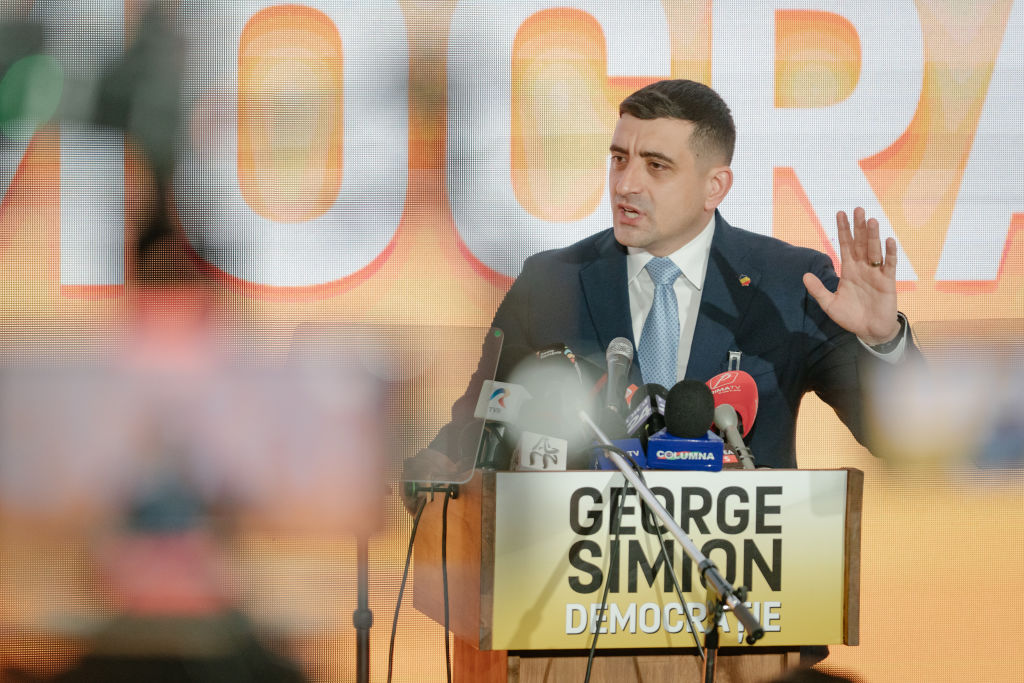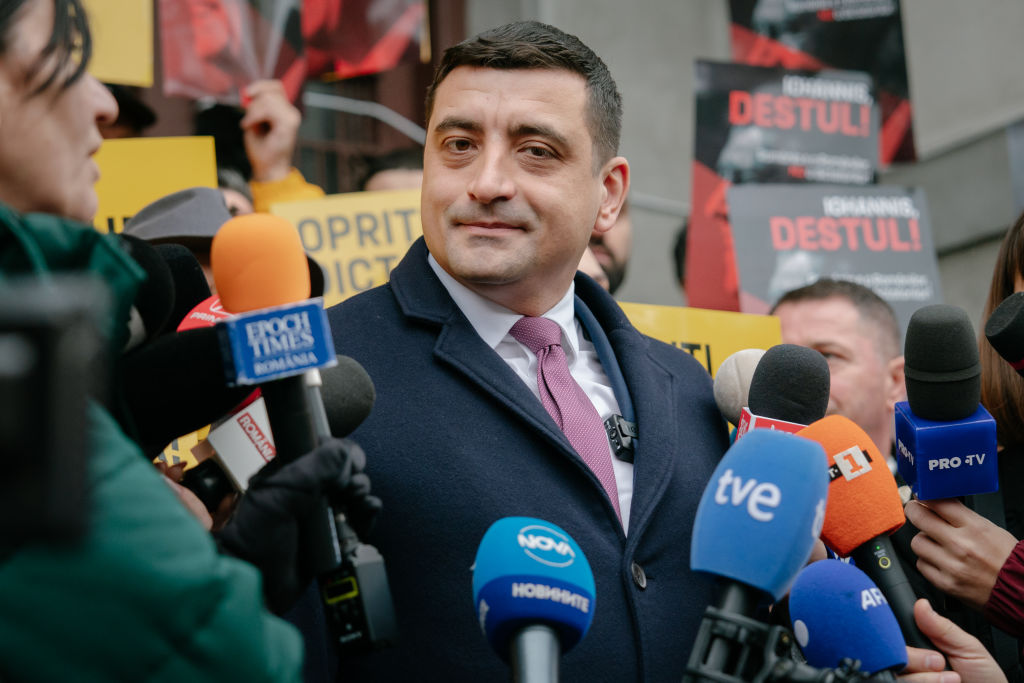Sunday’s election in Poland was important not only for the Poles themselves but also for Europe, and it is no wonder it attracted widespread comment in the international media. But why was it so significant? There are at least two major reasons—one in particular: It marked the failure of an EU-backed left-liberal government to crush the so-called “right-wing populists,” that is, the conservative, sovereigntist, anti-mass-immigration parties, and to prevent them from accessing power in free and fair elections.
As I explained in the Brussels Signal a year ago, the left-liberal coalition governing Poland since December 2023 has been implementing measures akin to “transitional justice.” It was originally employed in countries such as South Africa to dismantle apartheid, or in South American nations after the re-establishment of democracy, and Polish Justice Minister Adam Bodnar has said it should similarly be used in Poland supposedly to restore the rule of law after eight years of conservative governments.
In September last year, Prime Minister Donald Tusk explicitly stated he sometimes had to violate principles of the rule of law because Poland is a “militant democracy.” This concept originated in 1937 and was popularized by political scientist Karl Loewenstein, a German Jew who fled the Nazis and emigrated to the United States. The idea of “militant democracy” suggests that liberal democracies may need to take necessary—sometimes unconstitutional—steps against individuals, associations, or political parties that challenge democratic principles.
In today’s context, the reasoning is that constitutional restraints may be waived if the rule of law is considered to be threatened. Radical measures are then deemed necessary by a “democratic” government under the supervision of self-declared “old democracies” and their international agendas.
Doesn’t that sound familiar? Isn’t this the same discourse used to justify the cordon sanitaire policies in various countries and within the European Parliament? Or to justify cancelling a presidential election in Romania deemed to have gone “wrong,” or the efforts in Germany to ban the main opposition party, the AfD?
Earlier this year, Tusk declared that the tools of militant democracy would only be needed until mid-2025—that is, until the next presidential election. Had Trzaskowski been elected last Sunday, the ruling coalition could have passed laws to legitimise actions already taken unlawfully. For example, they could have:
- Passed a new law to regain control over public media—this time legally—while suppressing broadcasting licenses of two conservative news channels (the process to cancel licenses was already initiated).
- Secured presidential approval to change the national prosecutor’s office, a move performed forcibly and without legal grounds last year.
- Reformed the Constitutional Tribunal, Supreme Court, and National Council of the Judiciary—removing judges appointed by Law and Justice to make way for the “right” judges.
- Radically amended the abortion law to allow abortions up to the moment of birth—contradicting twenty-eight years of unambiguous Constitutional Tribunal jurisprudence, which makes it impossible to have abortion on demand in Poland under the current constitution.
Trzaskowski had also pledged to sign a hate speech law that, according to Bodnar’s assurances to LGBT organisations, would precede legislation establishing same-sex unions with equal rights to marriage—thus avoiding open debate.
From the EU perspective, a Tusk-Trzaskowski victory would have ensured Poland’s full implementation of the Green Deal and the EU Migration Pact. In this regard, the government of Donald Tusk is already in the process of preparing 49 migrant centres throughout the country to cater for the influx of relocated asylum seekers starting next year, although they have been consistently lying to voters. There was also little expectation that this duo would oppose ongoing EU centralisation efforts. 267 amendments to EU treaties, passed by the European Parliament in November 2023, were awaiting implementation pending the Polish election outcome, and the winner, Karol Nawrocki, has promised to block them.
Furthermore, Karol Nawrocki has promised to block the Green Deal and Migration Pact initiatives and to veto any further transfers of sovereignty to Brussels. It’s no surprise, then, that Brussels supported Tusk’s “militant democracy” approach and overlooked the serious breaches of the rule of law over the past year and a half.
Legal and Constitutional Violations
Some examples of those breaches include:
- Refusing to publish Constitutional Tribunal rulings or implement decisions from specific chambers of the Supreme Court.
- Defunding the Constitutional Tribunal in this year’s budget, preventing judges from receiving salaries.
- Illegally replacing the national prosecutor to control prosecution services nationwide.
- Unlawfully replacing judges and court presidents across Poland without proper legal procedures—often without court approval or input from the National Council of the Judiciary.
- Using harsh pre-trial detentions against political opponents as well as members of conservative and Christian groups.
- Withholding subsidies entitled to the Law and Justice party during the presidential campaign.
- Issuing government guidelines that reinterpret Polish law on abortion to permit procedures in cases of mental health threats, accompanied by financial blackmail against hospitals.
In March, the president of the Constitutional Tribunal formally accused the government of fomenting a rampant coup. If proven, this could result in life sentences for those responsible if/when the Right comes back to power.
With Karol Nawrocki elected as Poland’s next president—thanks to the support of all right-wing, conservative, pro-life, pro-liberty, and pro-sovereignty parties and organisations in Poland, including ours—the plan to legalise these unlawful actions has failed.
The Polish Constitution provides a broad array of powers for the presidency to act as a check and balance against both the liberal government and the liberal parliament, preventing the implementation of controversial policies and bills. Even explicit Brussels’ approval of Tusk’s ‘militant democracy’ would not suffice to legalise the government’s radical steps.
Furthermore, it will now be much harder for the left-liberal ruling coalition to win the next parliamentary election, scheduled for 2027 at the latest. If Nawrocki—supported not only by Law and Justice but also, in the second round against Warsaw’s Mayor Rafał Trzaskowski, by the Confederation (an alliance of Christian nationalists and conservative libertarians), the Royalists, and others on the right—can leverage his position into forming a governing coalition after the next election, Poland will likely have its most right-wing government since the fall of communism: fully pro-life, pro-liberty, and pro-sovereignty.
There will be no legalisation of abortion and no transfer of powers to Brussels. The powers unjustly taken by Brussels—without a basis in EU treaties—will probably be reclaimed. Poland is likely to soon become a net beneficiary of the EU budget, and financial blackmail tactics employed by the Commission and the Court of Justice of the European Union (CJEU) for years will no longer be effective.
The policy of regime change and social revolution orchestrated by Brussels in Poland was defeated last Sunday by Polish voters. The progressive revolution in Poland will have to wait, and in fact, we hope for a conservative counter-revolution following the next parliamentary election.
The only way to crush the will of the peoples of Europe would be to stop organising elections altogether. The Poles have just demonstrated that they will not be deprived of the sovereignty they regained only three decades ago by defeating communism, simply using “militant democracy” or “transitional justice” as tools of suppression.
Attorney Jerzy Kwaśniewski is President of the Board and co-founder of Ordo Iuris Institute for Legal Culture and Attorney and Managing Partner of Parchimowicz & Kwaśniewski Law Firm





EU liberals crushing the law in Poland by ‘transitional justice’